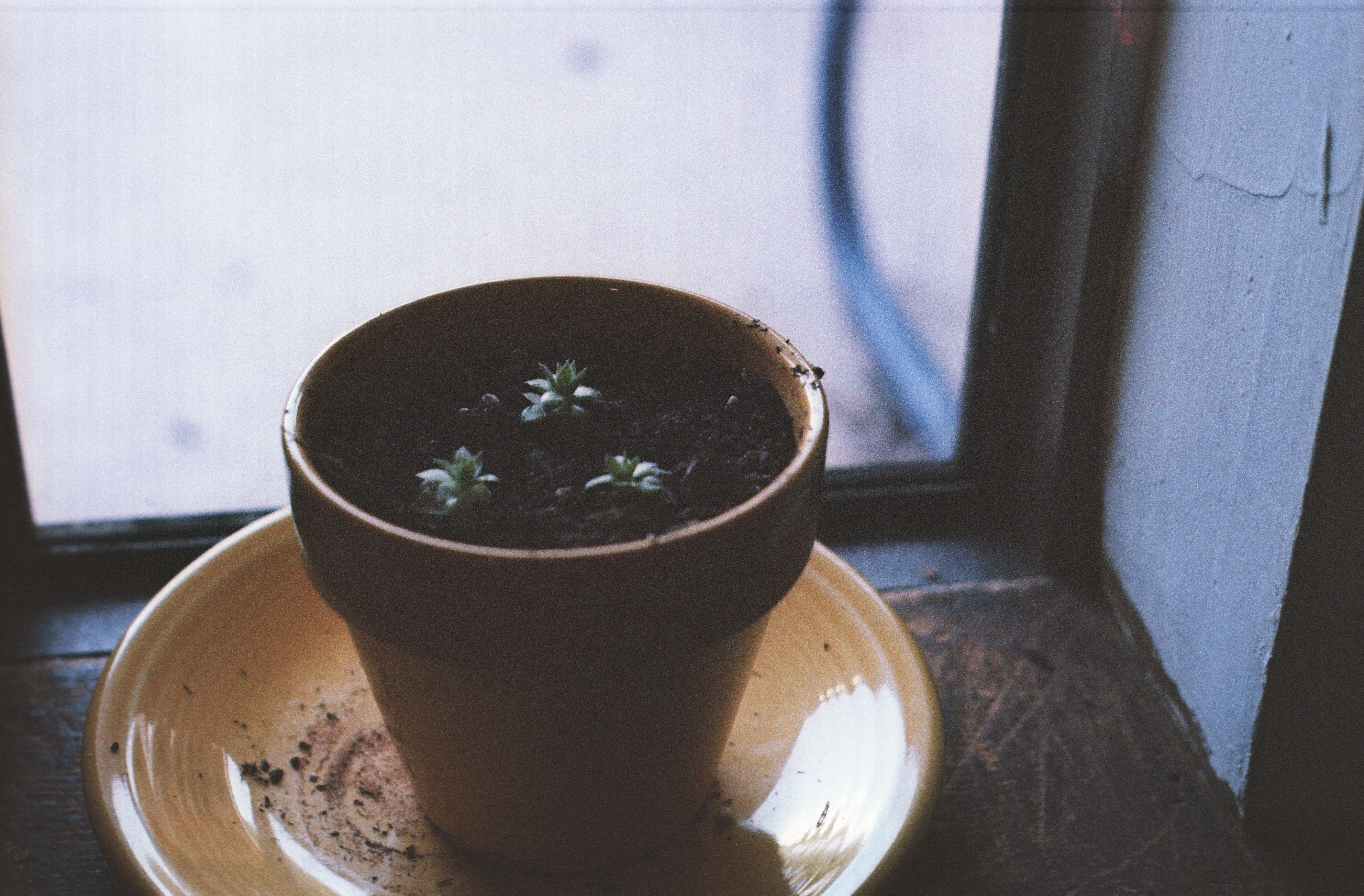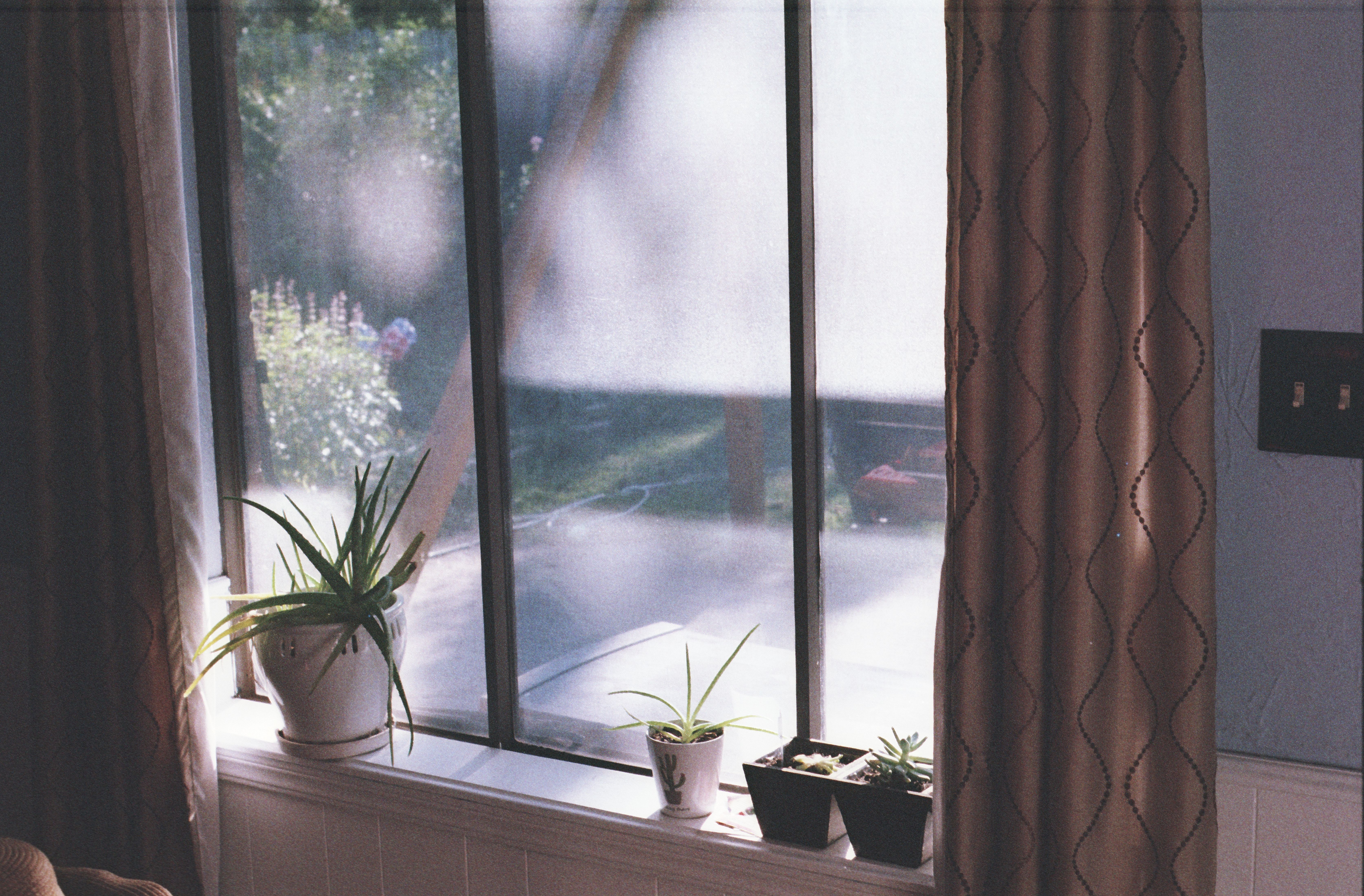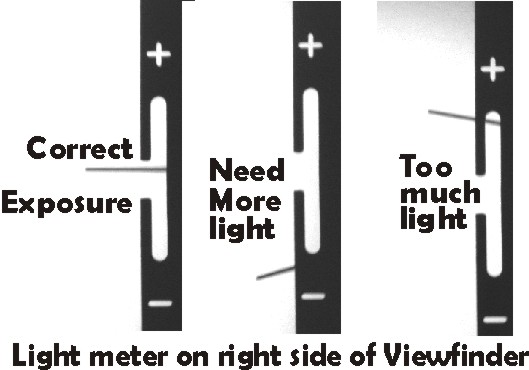1. Discovery
The Pentax K1000 has been an incredibly influential piece of technology for me. It entered my life when I was starting to develop a real appreciation for art as well as informing my view on technology contrary to what it had been previously. The K1000 has many qualities that captivated me upon using it for the first time. It has a sense of immediacy and joy built into it that makes me question my faith in the alternatives of our current age.
In the summer of 2019, my family and I dug this thing out of the back of a closet. It was my dad's when he was in college. All my life he has been very interested in technology, meaning I had only ever been around digital point-and-shoot cameras and then cameraphones. Film photography only existed in a vague early childhood portion of my memory. When I saw that it was a "Pentax," I assumed it was not too great of a camera because it was a brand I had never heard of before but surprisingly I read online that it was a great and standard beginner SLR for photography students.
(from my first roll in 2019)



One of the most memorable periods in my early adulthood was learning to use this camera. Looking through the viewfinder was a magical experience where the world took on just a little bit of beautiful irreality. The pictures I took through my first roll of film through the K1000 were of my childhood house and of some portraits of friends at the park. These photos aren't great by any real standard but they are really special to me. What I love most deeply about this camera is the way that anyone can pick it up and start making intentional photographs .


2. Message of the K1000

I'm sure that having neocities as the platform for many of the ideas I'm presenting is probably preaching to the choir a bit. I have only recently begun this journey of learning html and making web 1.0 type websites but I can tell this process has many similar qualities to what I love about the K1000.
My framework for discussing this is informed by Marshall Mcluhan's idea that "the medium is the message." By this he means that every kind of technology has under-considered biases built into them that shape our culture. It is one thing to talk about the effects of a particular photographer's work but it is another to talk about how a type of photography influences our culture and way of thinking. The message of the K1000 to me is that anyone can operate the technical aspects of a piece of technology if the parameters of the goal they are given are clear and achievable.
What makes the Pentax K1000 interesting is that it is accessible in two different ways. It is incredibly easy to use right off the bat. The first goal is to get a correctly exposed shot which is controlled by the shutter speed knob and the aperture ring. All one has to do is mess with these two things until the lightmeter needle reads in the center, then push the shutter button and boom, a picture is taken. Another way in which it is accessible is that you literally have direct 'access' to mechanical functions that affect how the photo looks. A point-and-shoot and cameraphone still have these things under the hood but most aren't able to be controlled by the photographer.

In general, film cameras hold the message of delayed gratification when compared to the cameraphones of today. Taking photos and viewing photos are separate activities when you have to wait to get your film developed. This has the incidental benefit of having an incredibly focused picture taking experience. Everything is deeply set in the present. Looking through a viewfinder, you can see your subject with clarity and without imagining how it will look on an LCD screen 5-10 seconds later.
3. Unnecessary Technologies (a rant)
My thoughts surrounding this camera continue to evolve but I have always wondered why aren't devices like this one more common? People were taking and cherishing photographs before the iPhone, so why does it advertise itself as a solution to a lack of access to photography. The Pentax is so satisfying while so easy to use that I don't understand why cameraphones have a complete grasp on our world. It seems like the faulty promise of technological progress has created a rift in cameras where professionals have deeply complicated technological marvels and the rest of us are stuck with cameraphones. The journal camera for the average person has been killed in companies lineups due to the iPhone. I believe this is what Pentax wants to do with their new “Pentax 17.” (though it is expensive).
Cameraphones do have some good qualities. Low light photography has been made more accessible and convenient through the algorithmic computing in a smartphone camera. Also, the instantaneous and expendable nature of a phone pic means small moments are easier to capture for the non-photographer. The ‘abundance and convenience’ message of the cameraphone is certainly appealing, though I would argue against the idea that they are a net-good for us.
There is a general problem of the smartphone as a cure-all device for all our woes. No matter how much the iPhone 15 Pro advertises that 48 megapixels and 7 lenses will take great pictures (and thus great memories), it is still a device that feeds you notifications. This is an unmentioned factor in how photos turn out. Almost every user of the iPhone 15 Pro won't be using it for macro and wildlife photography as advertised. If they do, it will just end up on Instagram anyways. Most will be using it to journal their everyday life and in that regard, the iPhone is only better than a purpose-built camera in quantity. When the user looks through the viewfinder of any old or new camera, they are only focused on capturing that moment because, to put it dramatically, they are enraptured by it. That is a very different experience than the iPhone, where you are always thinking of the photo's destination, whether that be Instagram or a group text. Even if the SLR user is thinking about social media, they are still a couple steps removed from it, meaning they are much more focused on the image itself than the iPhone photographer.
I think at the core of my argument for cameras like the K1000 and against cameraphones boils down to that accessibility aspect mentioned earlier. The K1000 shows that every person is capable and rewarded for being in control of the actual functioning of the camera. Thus, it is almost insulting that tech companies appraise us of only being able to operate a camera with one button. One button plus other algorithmic modes takes the power over what media tends to look like out of the hands of the average person and instead to the corporation. We see this trend towards hypertechnologization in cars, musical equipment, in computing, or even in a classroom. It gets to a point where the average person has no idea how the thing they use everyday works on any sort of deep level. Sure, some of this could be the fault of the people, but when everything becomes incredibly technologically advanced, it becomes hard to really understand how all of it works. When this is the case, power is transferred to tech companies because they are the ones creating this world where people cannot see 'the guts' of tech like they used to.
In closing, I believe that Generation Z's romanticization and nostalgic drive towards older technologies is valid. A theme of using this camera for me is that just because a piece of technology is newer and has more R&D money packed into it, does not mean it is good for people to have in general. I'm going to use some of Neil Postman's reasoning in saying that we have not had time to culturally adjust to centralizing everything on one device. There is something special about holding a device that is just for taking pictures or just recording audio or even just for making phone calls. It is somehow easier to process for us. Those devices connect us to our thoughts more clearly. Using a smartphone as a camera or even as a telephone requires us to constantly be multitasking. We haven't evolved to be able to do that continuously.
If you're at all interested in photography I would recommend asking around or visiting a camera store to see what they have in stock. We have all gotten too used to using our phones as our only cameras. I hope anyone reading this has or will go on a journey with a special piece of technology like I did with my dad's old K1000.
Thank you for reading!
